Throughout the 20th century, humanity has witnessed important moments that helped and mark the fight against prejudice that have permeated societies for centuries.
The fight against racism and the guarantee of human rights for blacks, women and homosexuals were some of the most significant movements in recent decades.
There are still countless barriers to overcome, but certainly human beings have already taken a big step against discrimination, whether racial, social or sexual.
Check out some of the moments that portray the fight against intolerance and prejudice in the world!
1. the end of apartheid
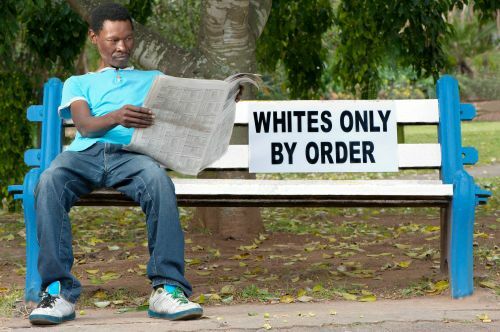
South Africa experienced one of the greatest racial segregation regimes of the 20th century: the Apartheid.
South Africa's black population, under the rule of a white European minority, has faced severe restrictions on freedom and human rights for centuries.
However, officially the Apartheid regime lasted for more than 50 years (1948 – 1994).
One of the great symbols of the struggle for black rights was
Nelson Mandela, one of the leaders of the African National Congress, who spent 27 years in prison for helping in the fight against the government of the apartheid South African.
Mandela was elected the first black President of the Republic of South Africa during that country's first multiracial elections in 1994.
The end of the absurdity that characterized Apartheid was a gigantic step against the ideals of racial segregation in the world.
In fact, it was in honor of the episode of massacre of Shaperville(one of the saddest and most violent of Apartheid) that the United Nations (UN) created the International Day against Racial Discrimination, celebrated annually on March 21st.
Understand here:what was apartheid.
2. The first black woman to study at a white school in the US
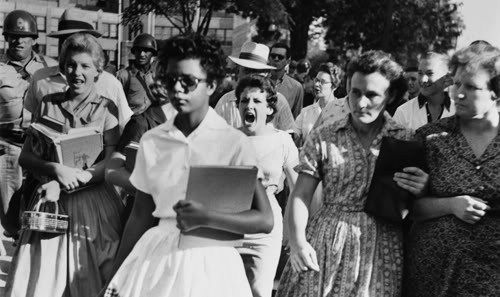
Across the world, in the mid-1950s and 1960s, African Americans were also waging a constant battle against racism in the United States.
After the approval of a law that began to force the end of racial segregation in the country, several North American schools were forced to accept black students in their educational institutions.
Until then, Afro-descendants could only study in schools exclusively for blacks.
The first black students to attend schools for whites suffered severe physical and verbal attacks from local society.l, mainly from educational institutions in the south of the country.
Elizabeth Eckford was one of the first African-American students to attend the Little Rock Central High School, in Little Rock, Arkansas.
With a predominantly white conservative student population, Elizabeth Eckford was heavily attacked and unwelcome at school. Her persistence and strength in facing the various insults at school was recorded by journalists at the time.
Her image was marked as one of the most iconic of resistance against the intolerance and ignorance that characterize racism.
See also:6 Books on Racism that Everyone Should Read and examples of social movements.
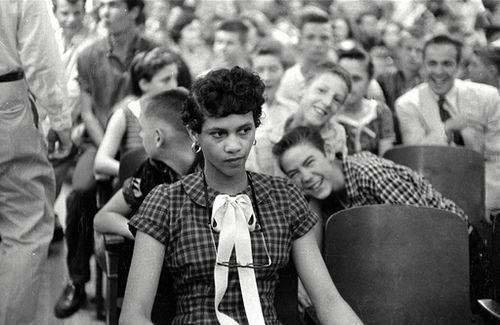
Other students who also faced severe aggression during the process of "racial miscegenation" of the American schools, have become icons of the fight for civil rights for blacks in the United States, like Dorothy Counts, first black woman to join Harry Harding High School, in Charlotte, NC.
3. Death of Martin Luther King Jr.
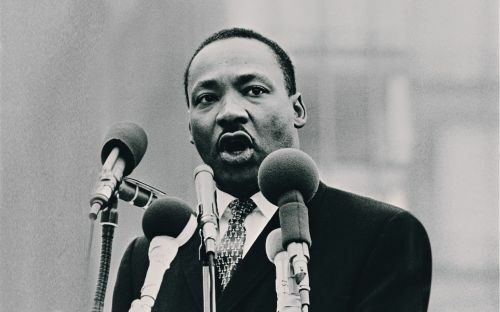
Without a doubt, Martin Luther King Jr. he is considered one of the most emblematic personalities in the fight against racism in the United States and around the world.
His position and great passion for guaranteeing the civil rights of the Afro-descendant population has earned him countless enemies throughout his life.
From a stance in favor of "no violence" It's from "love the next", Luther King was consecrated in 1964 with the Nobel Prize of Peace in response to his work against racial inequality.
The murder of Luther King, on April 4, 1968, prompted a series of actions to curb racism in America and across the planet.
In his honor, it has been established in the United States since 1986, the Martin Luther King's day (celebrated on the third Monday in January).
Meet others black personalities who changed the world.
4. Stonewall Revolt
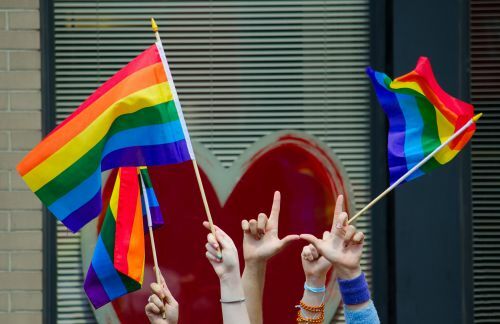
The fight against prejudice is not only focused on racial issues, but also gender.
From the mid-twentieth century, groups of homosexuals began to organize themselves with the aim of guaranteeing equality in their civil and social rights.
In the United States, the Stonewall Revolt (June 28, 1969) marked one of the most important episodes in the LGBT movement.

In this case, the abusive police invasion of the bar Stonewall Inn, in New York, sparked an intense and violent rebellion among the locals, who were mostly homosexuals.
It is worth remembering that between the 1950s and 1960s, American homosexuals faced a totally anti-homosexual legislation and legal system.
The resistance in stonewall spread throughout the country a wave of protests in favor of LGBT rights. In fact, it was from this episode that the first Gay Pride Parades emerged, events that sought make the population aware of the idea of equality between the rights of people with different orientations sexual.
Homosexuals continue to fight to guarantee their civil rights, but they have already made significant advances in various regions of the world.
The approval of the same sex marriage, for example, constitutes a great victory for the LBGT community against prejudice and homophobia.
5. Women win the right to vote in Brazil

Women have also always been the target of prejudice in predominantly sexist societies.
In Brazil, winning the right to vote in democratic elections was one of the most significant victories for women in the 20th century.
Was February 24, 1932 that Brazilian women began to guarantee the right to demonstrate their democracy at the ballot box during elections.
But the struggle of women for equal rights and duties between genders is quite old. Feminist movements in Brazil began to intensify during the 19th century.
Currently, however, the fight against prejudice also remains constant for women. Admittedly, several advances have already been made, but gender inequality is still alarming and measures still need to be taken to prevent misogyny and other forms of violence against women.
If you want to know more about this subject, check the meaning of Misogyny and of the gender equality.
Learn more about the meaning of Racism It's from Preconception.
